Ben Vereen Believes That More Black Stories Must Be Told
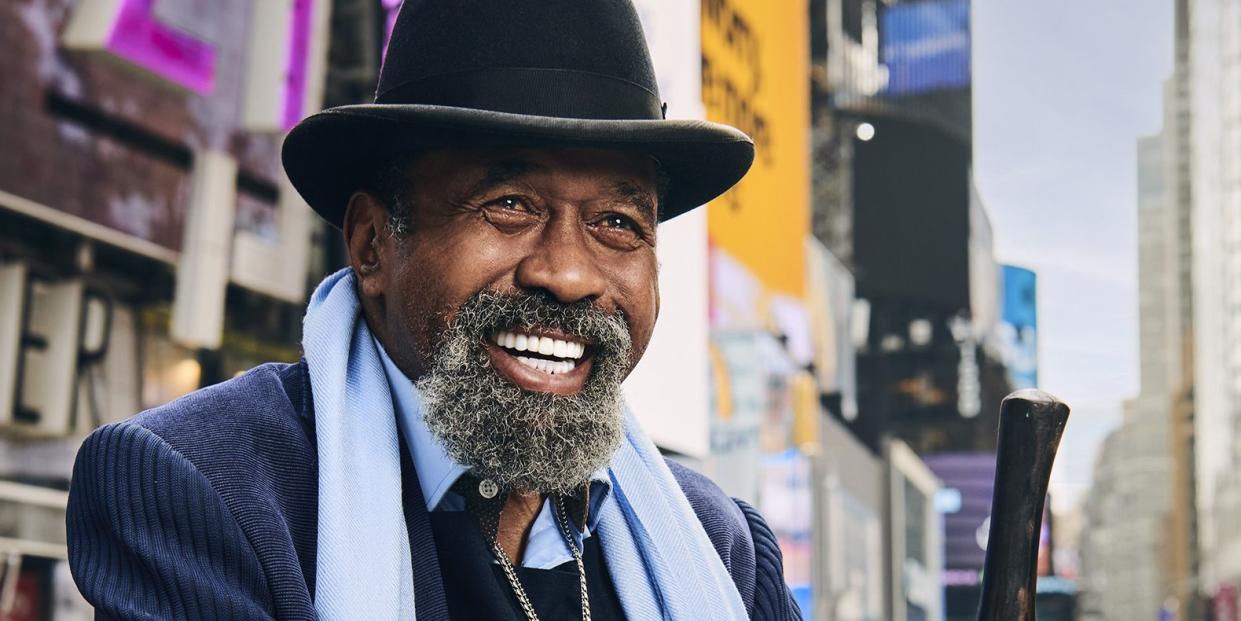
- Oops!Something went wrong.Please try again later.
“Hearst Magazines and Verizon Media may earn commission or revenue on some items through the links below.”
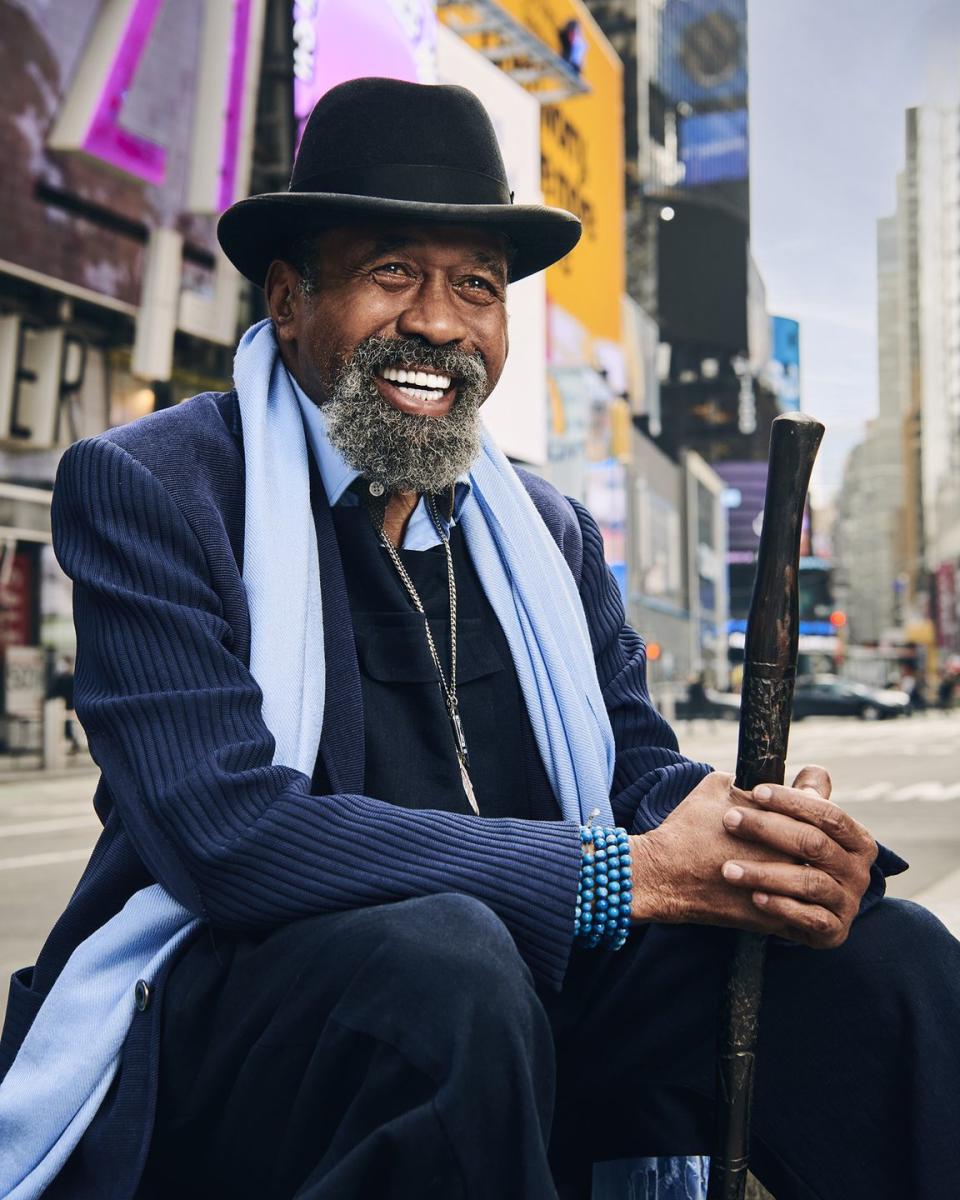
Interview by Danielle Harling/
Photograph by Jai Lennard
For decades, award-winning actor Ben Vereen—a Florida native who originated roles on Broadway in Jesus Christ Superstar and Pippin and was nominated for an Emmy for his portrayal of “Chicken” George Moore in 1977’s landmark television adaptation of Roots—has proven to be a trifecta of talent, mastering film, television, and the stage. Not one to let his accolades outshine his purpose, Vereen talks here of his humble beginnings and why Black stories need to be told.
Danielle Harling: What is the most surprising or interesting thing about being your age?
Ben Vereen: Well, you know, one day you wake up, Danielle, and you realize that you’re 75, and you go, Where did the time go? It’s a shock to the brain. because my spirit, my inner being, still wants to do the things that I used to do, but my body says, No, you won’t. You will not do those cartwheels and splits, you will not jump up over that fence, you will not do those things; but my spirit leaps boundaries, you know? That’s what I find interesting about being my age.
And also with it comes wisdom—waking up to knowing things from living through life that you can share with others and, hopefully, guide them. They have their own paths they’re going to go through in life, but at least you can give them some idea of some of the pitfalls.
DH: To rewind a little bit: How would you describe your childhood?
BV: My childhood was being blessed by people who had come into our lives. I call them the angels. When you come into this planet, we don’t know that we’re bringing in the vibrations that we’ll need in order to guide us along this journey called life. And my parents were wonderful angels. My parents, the people I’ve met, my godparents, my teachers, and friends.
Singing with a quartet group called the Sensational Twilights of Brooklyn. Running with gangs when I was in Brooklyn, being called up the street to the High School of Performing Arts. Going from there to meeting a guy named Langston Hughes and doing his play The Prodigal Son. Vinnette Carroll, Bob Fosse, the list goes on and on.
My mother, God bless her, she didn’t have much education—fourth grade—and she was from the South. But she had determination. She had tenacity for life, she had vision, and she wanted to do things for her son she didn’t have in her life. She was the one that pushed me out the door, when the guy came along the street and said “Startime Dance Studio!” she said, “Take him!”
We’d be sitting around a stove, a potbelly stove—I don’t know if you know what that is. You’re too young to know what a potbelly stove is. It’s a stove with a potbelly and you put water in it. And we’d be sitting there, the rent wasn’t paid, the gas was off, the lights were off, and we’d be sitting there. And she’d look at me and she’d say, Bunny—she called me bunny—she said, "All we have to eat is a donut. You’ll eat the donut and I’ll eat the hole, don’t you worry about a thing a son."
And that’s the way I was raised. That’s the way I was raised.
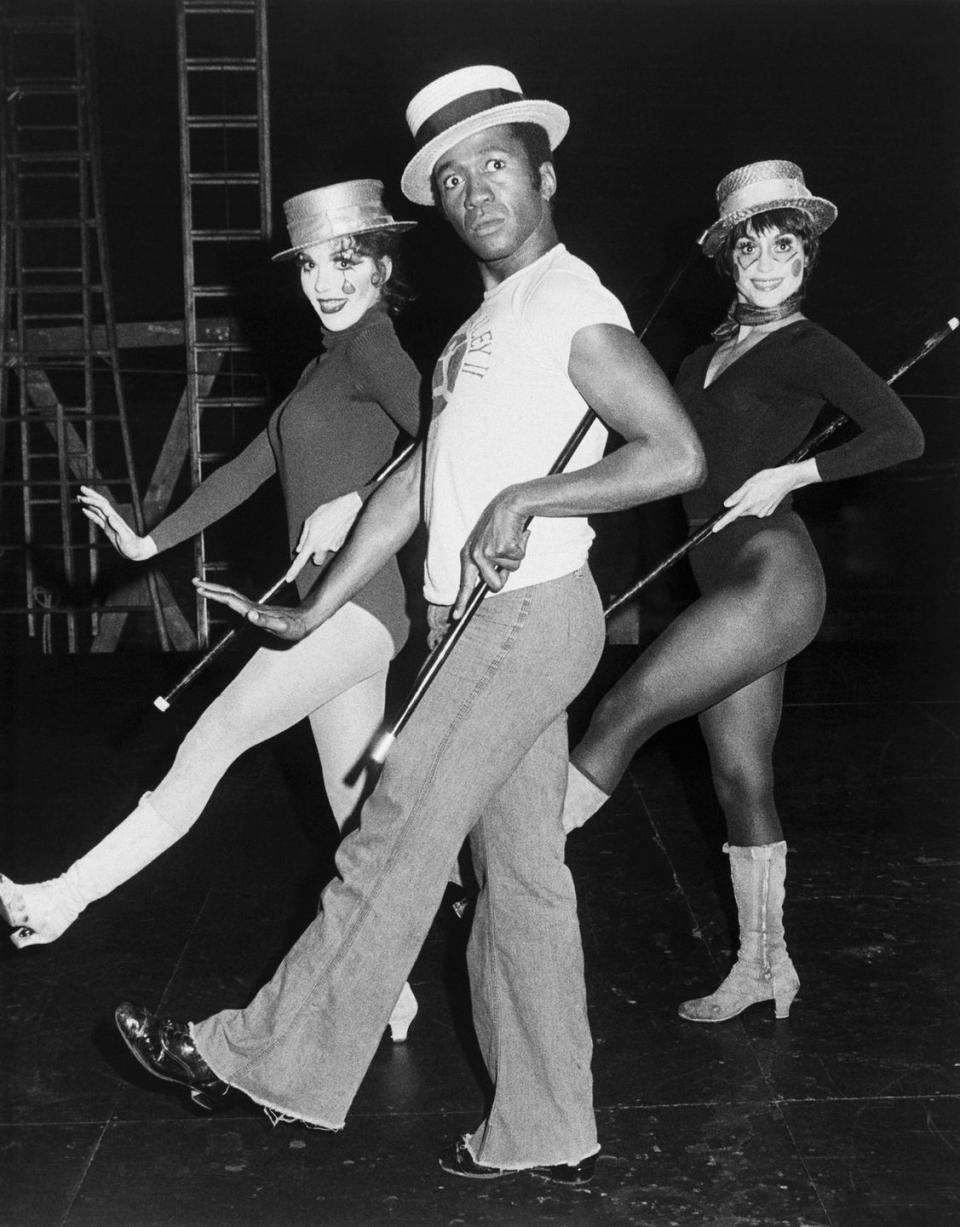
DH: You’ve said that the spirit chose you to do what you do. What did that look like?
BV: You have this vision. Where did that vision come from? Where did that instinct come from? You didn’t just wake up one day and say, Oh, I want to be a journalist. No, there’s something inside of you, that hunger, and you followed that passion. That spirit—that’s not intellectual, that’s not a college degree. That is instinct, that is spirit that’s calling you forth to who you are today.
The same thing with me. Someone once said this: The creator—God, Allah, Buddha, Jesus, the Great Divine—gives us a dash and he says, "I’ll meet you at the other side of the dash. What you do with that dash, which is your life, is up to you. But I’ll meet you on the other side." And those guides come along and help us. You’ve had guides in your life haven’t you?
DH: Absolutely. Yes.
BV: Teaching, inspirational, people who inspired you. You know. Look what you’re doing today. Look at you, girl! You’re bad!
DH: Thank you! Would you say that you’ve been a guide to people as well?
BV: I would like to think so. I’ve tried to give back what’s been given to me. We are our brothers’ and sisters’ keepers. We help one another. Somebody said during the pandemic, we’re in this together. We’re in this life together. It’s a beautiful thing, so let’s help one another. You’re helping my life be better right now by doing this interview.
DH: Oh, I appreciate that. What is your advice to young people who want to pursue the arts?
BV: I have a program I call Pathway to Excellence and it works like this: I know young people want to be in the arts, and we welcome that because the arts are the source of our creation. See in the beginning, it said God created, not God manufactured. Therefore we are all creative aspects of that wonderful creation.
But sometimes when we throw ourselves into this business, we don’t know what we’re throwing ourselves into. All we want to do is sing, dance, act, say poetry, do music. But then you’ve got business, you’ve got health issues, you’ve got all sorts of unions—a lot of young people don’t know about all that, so I try to prepare them.
I’ll have a class where I’ll have a lawyer come and teach kids how to read a contract, have an accountant come and teach them how to balance a checkbook, have a physical therapist come in and talk to them about taking care of their bodies. I’ll have a director and an agent come in and tell them about what you have to do to get an agent.
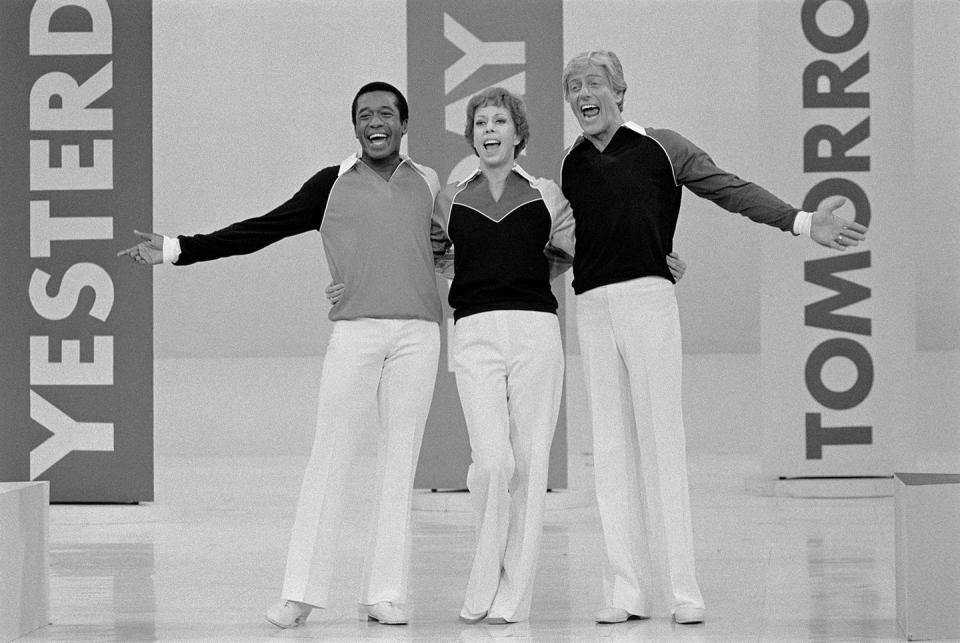
DH: Given what’s happened with COVID, what do you see as far as the future of Broadway and theater? Will it ever be the same?
BV: No, but it will be back. It’ll come back with a new paradigm. It’ll come back with a new expression. I just went and saw a show last night called Blindness, what was mainly just listening to someone read a story in lights, you know? People looking for pop-up theater right now, which Nathan Lane did, and Savion Glover. We’re trying to find new paradigms to try to reach our audiences. Theater will be back. It won’t be like we knew it, but it’ll be a new adventure, and that’s exciting.
DH: When you were in Roots years ago, did you have any idea that it would be so impactful decades down the line?
BV: Of course not. I’ll tell you a story. I was doing my act on the road and I heard about this book called Roots that Alex Haley had written. It was in the Reader’s Digest. ABC had decided it would do a thing called a miniseries. I went down to Philadelphia to do a concert and I came back on a train and I’m reading this book. I went to my agent and said I want to do this. This is beautiful and important. And he looked at me and he said, "Ben, they’re looking for actors." He said, "You’re a song and dance man, so don’t get your hopes up on this."
So I went off, you know, doing my song and dance act, and I was in Chicago one night, and I came off stage, I went to my room, and there was a knock on my door. A gentleman named Stan Margulies was there and he said to me, "I’m here shooting a TV show called Roots. I’d like for you to be my Chicken George." I didn’t know what a Chicken George was. I wanted to be a part of it. Why? Because of the importance of the document.
You see, my Jewish brothers and sisters had Hitler, who was a madman, who filmed everything. They have documents, but my people don’t have documents. We don’t have film. We have spoken word. So this is an opportunity for us to document the slavery story. So, that’s why I did it. I’m sure if you speak to a lot of the cast members they’ll tell you that’s the reason why we did it. We had no idea it was going to take off the way it did. We had no idea. We were so thankful that it did, for the fact of you and the children coming behind you to have some sort of document where you could say This happened.
DH: I feel like there’s this debate now, or conversation, about how much Black trauma should be in film and television.
BV: When I was growing up, every Sunday night on Channel 11 or Channel 9 in New York City there was a reminder that the Holocaust had happened. And now we’re saying, Well, what about the Black holocaust? No, we haven’t told all our story yet. We haven’t talked about the brothers and sisters who ran off with Harriet Tubman to Canada and when they got there, turned around and came back when the Civil War started to free our people. They don’t talk about the gentleman who bought 200 slaves in Alabama, took them all to Canada and said, I’m going to give you your freedom but you’ve got to learn to work the land. We don’t talk about that. We don’t talk about Crispus Attucks, who was the first Black man to die for the liberation of this country.
I’m playing a guy named Frederick Douglass right now. You want to understand something? We were not allowed the English language. We were beaten and hanged if we tried to read. And here’s a man who taught himself to read, to write, who hadn’t had a newspaper, but he became the ambassador to Haiti, who was a world-renowned scholar and speaker. We have a rich heritage. So the debate on whether or not we should continue to tell our story? I say yes, because our story has not been truly told yet.
We have a lot of stories about violence and gangs and things of that nature. What about the source of our existence? What about the beginning from the beginning? What’s the beginning back when it was the beginning? So that our children know on whose foundation they are standing on. So that they no longer look to be a Superman. We’ve got Black Panther now, so why not have more? So, now we’re beginning to equalize.
DH: What does equality for Black people look like to you?
BV: We’re all created from one creator. We’re the bouquet. If you look at the fields of flowers, they’re different flowers, but it makes up the bouquet of God’s expression of life. Equality looks to me like that for men and women, Black and white.
DH: I love that.
BV: We’ve got to level the playing ground here for you and for your children, for my children and my grandchildren. You know we’ve fought too hard to where we almost died. Billie Holiday said strange fruit hanging from the poplar trees. A lot of us were hanging from poplar trees, but we’re here today, you and I, talking.
DH: I notice you have the ocean as your Zoom background. Why is that?
BV: I sometimes sit and I meditate to the ocean. I look out at the endless possibilities it has to offer me, and I want to catch it before the sun goes down. I try and tell people, if you’re going to walk along the sands of life, leave big footprints in the sand and look upon the sea to see your possibilities.
About the Journalist and Photographer
Turn Inspiration to Action
Consider donating to the National Association of Black Journalists. You can direct your dollars to scholarships and fellowships that support the educational and professional development of aspiring young journalists.
Support The National Caucus & Center on Black Aging. Dedicated to improving the quality of life of older African-Americans, NCCBA's educational programs arm them with the tools they need to advocate for themselves.
This story was created as part of Lift Every Voice, in partnership with Lexus. Lift Every Voice records the wisdom and life experiences of the oldest generation of Black Americans by connecting them with a new generation of Black journalists. The oral history series is running across Hearst magazine, newspaper, and television websites around Juneteenth 2021. Go to oprahdaily.com/lifteveryvoice for the complete portfolio.
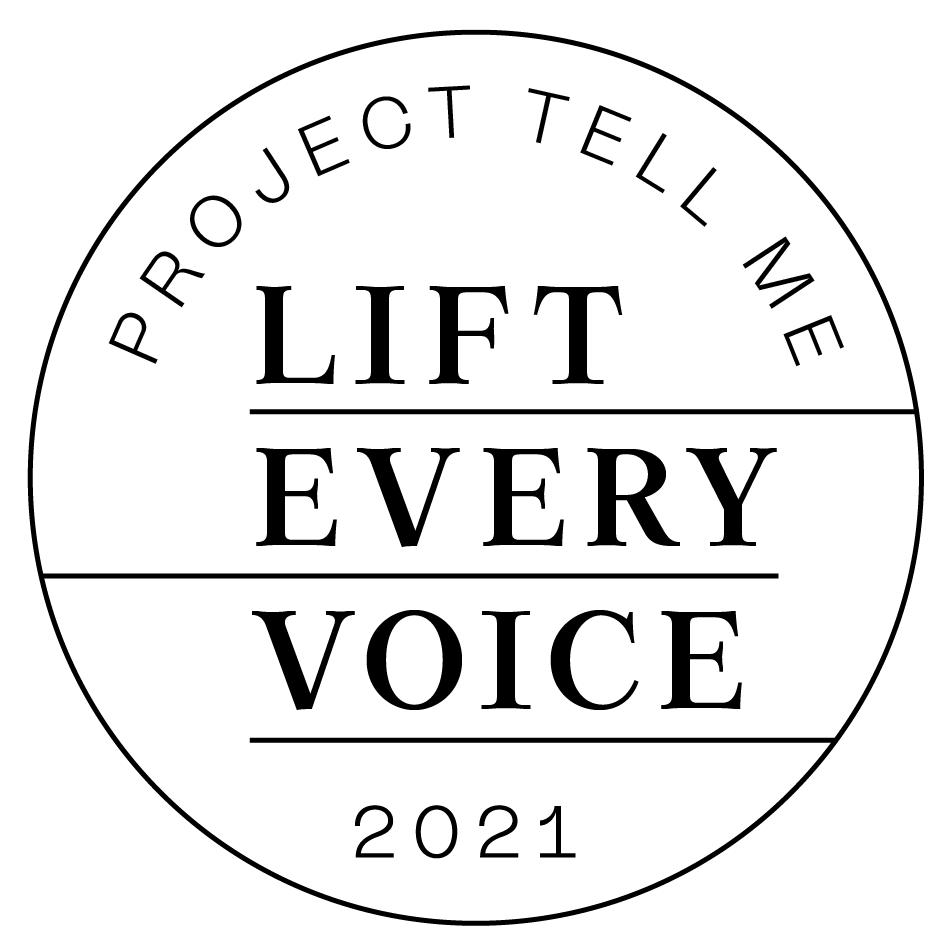
You Might Also Like

